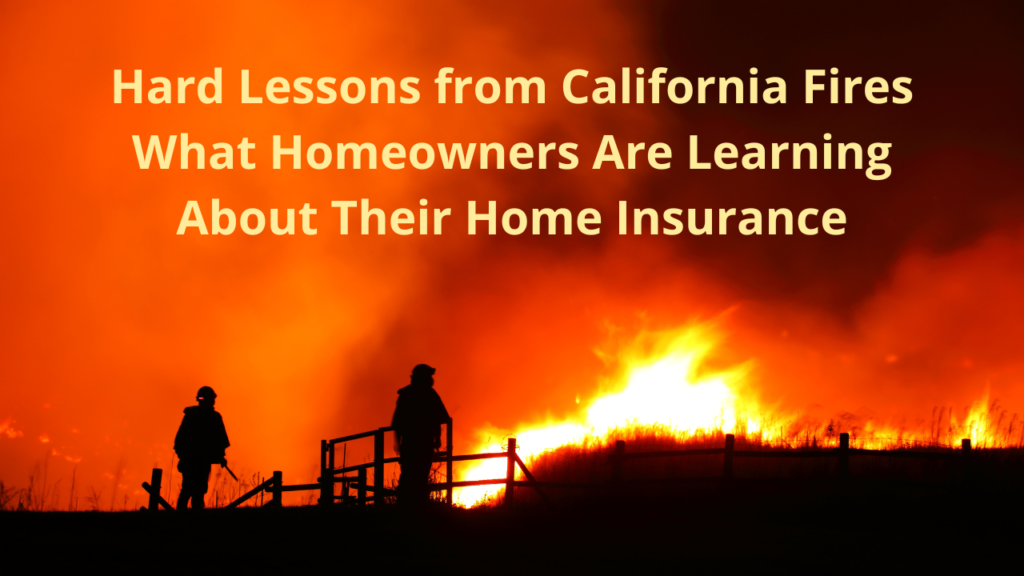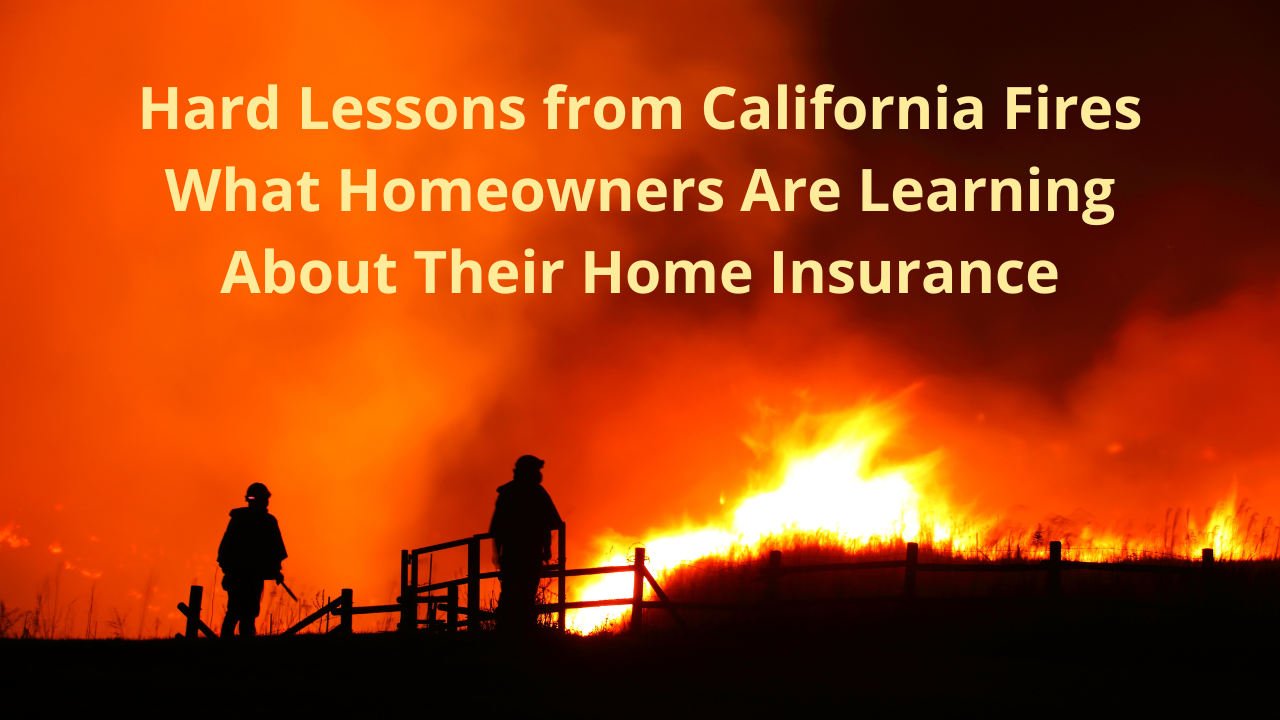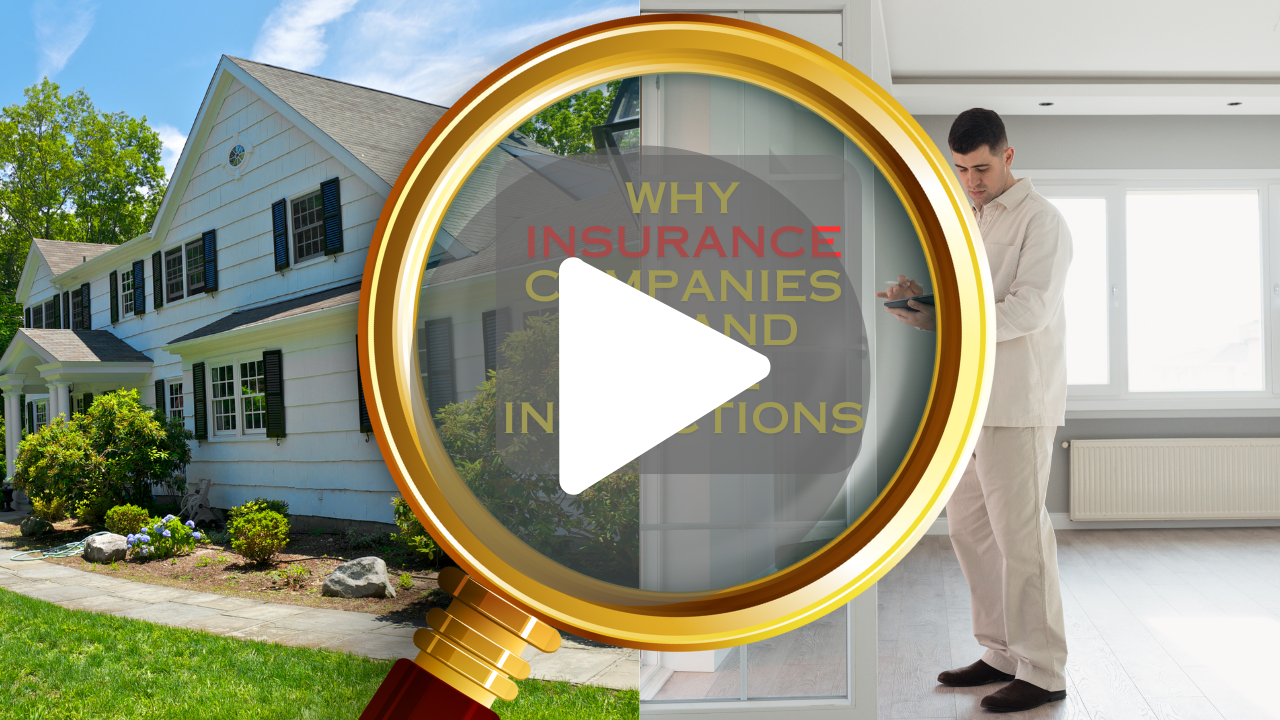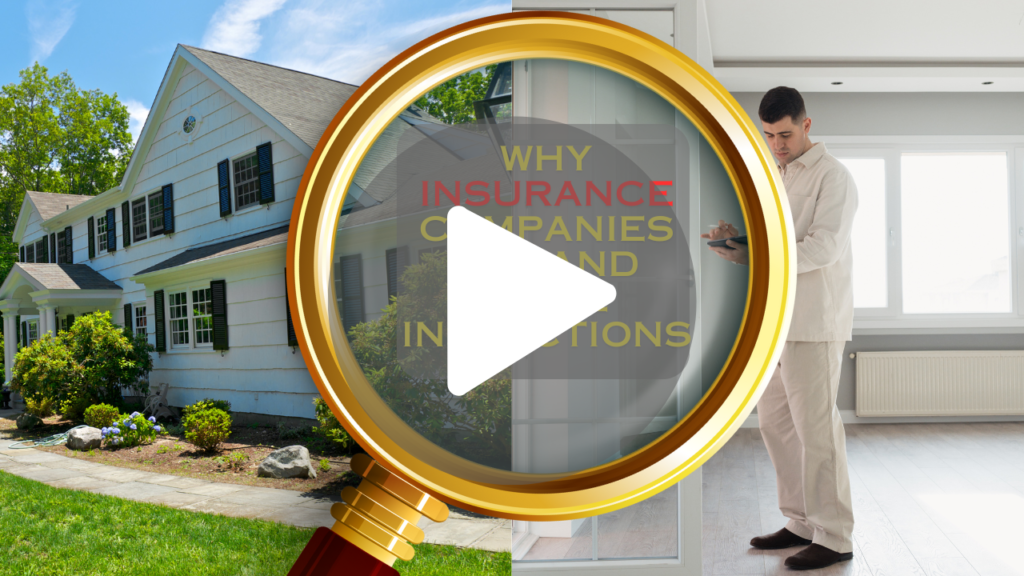Hard Lessons from California Fires: What Homeowners Are Learning About Their Home Insurance

Wildfires are devastating California communities, leaving thousands of homeowners struggling to rebuild. Many are facing an even bigger shock—learning too late that their insurance doesn’t cover the full cost of rebuilding.
At Vargas & Vargas Insurance, we’ve helped homeowners avoid financial disaster by making sure their coverage keeps up with rising costs, home improvements, and new building regulations.
In this article, we’ll break down the costly lessons wildfire survivors are learning and show you exactly how to protect yourself before it’s too late.
Outdated Coverage: A Common Problem
A homeowner from Paradise thought she had enough insurance. She’d bought her home for $300,000 in 2010 and kept the almost the same coverage all of these years to save money. Over the years, she:
- Added a new kitchen ($45,000)
- Built a deck ($15,000)
- Updated all bathrooms ($30,000)
When her home burned down, she learned her policy would only pay the dwelling amount. “I never knew I needed to tell my insurance company about improvements,” the homeowner says. “Now I’m short $90,000 for rebuilding.”
The Hidden Gap: Construction Costs vs. Insurance Coverage
Another family from Santa Rosa faces a different problem. His insurance covered his home’s value, but he didn’t account for:
- Rising construction costs (up 30% since 2020)
- Labor shortages driving up prices
- Material costs increasing due to demand
- Inflation affecting building supplies
A home insured for $400,000 but requiring $580,000 to rebuild leaves the owner with a $180,000 shortfall.
Building Code Surprises: Understanding Ordinance or Law Coverage
Another story reveals another coverage gap. Their 1980s home burned down, and now they are learning about something called “ordinance or law coverage.” This special insurance helps pay for upgrades required by new building codes.
Here’s what it covers:
- Demolition costs if undamaged parts must meet new codes
- Required upgrades like:
- Modern electrical systems
- Fire sprinklers
- Solar panels (now required on new California homes)
- Enhanced insulation
- Fire-resistant materials
Insurance Gaps Many Are Finding
California homeowners are discovering several common problems:
- Extended Replacement Cost Missing
- Basic policies may not cover rebuilding if costs exceed limits
- Many lack the 25-50% extra coverage buffer needed
- Coverage Didn’t Keep Pace
- Home improvements never reported
- Property value increases not reflected
- Construction cost changes not considered
- No Temporary Housing Coverage
- Some policies have inadequate living expense coverage
- Rebuilding takes longer than expected
- Temporary housing costs exceed policy limits
The Cost of Being Underinsured
Another family from Santa Rosa shows what adequate coverage means:
With Full Coverage:
- Home properly valued at current building costs
- Extended replacement cost adds 50% if needed
- Ordinance or law coverage handles code updates
- Adequate temporary housing coverage
- Total premium: About $1,800 yearly
Without Full Coverage:
- Basic policy with original purchase value
- No extended replacement cost
- No ordinance or law coverage
- Limited temporary housing funds
- Total premium: About $1,200 yearly
The $600 difference in premiums could prevent $200,000+ in out-of-pocket costs.
Protect Yourself: Essential Steps
Many California homeowners are learning painful lessons about their insurance coverage—after disaster strikes.
Without proper coverage, you could be left with hundreds of thousands in out-of-pocket costs, struggling to rebuild.
Your best move? Schedule a policy review today to ensure your coverage is up to date and fully protects your home.
At Vargas & Vargas Insurance, we specialize in helping homeowners avoid financial disaster by ensuring they have the right coverage. Contact us today for a free consultation, we can help you with:
- Update coverage for home improvements
- Add extended replacement cost coverage
- Include ordinance or law protection
- Review temporary housing limits
- Ensure proper landscaping coverage
Why Act Now?
Another homeowner from Paradise shares: “I kept meaning to review my policy. After the fire, I learned I was underinsured by $250,000. That yearly review would have cost nothing but saved me everything.”
Trusted Resources
Learn more about proper coverage at:
- Insurance Information Institute: [www.iii.org/article/homeowners-insurance-basics]
- Complete coverage guidelines
- Cost calculators
- Policy review checklists
- National Association of Insurance Commissioners: [www.naic.org/consumer_home.htm]
- State requirements
- Consumer protection information
- Insurance comparison tools
Take Action Today
- Schedule your free policy review with Vargas & Vargas Insurance
- Document all home improvements
- Check your building code upgrade coverage
- Review temporary housing limits
- Update landscaping coverage
Don’t wait for disaster to learn these lessons. A small investment in proper coverage now can save hundreds of thousands later. Contact Vargas & Vargas Insurance at 617-298-0655 today to protect your home and family’s future.
Remember: You can’t change your coverage after a disaster strikes. The time to review your policy is now.



























